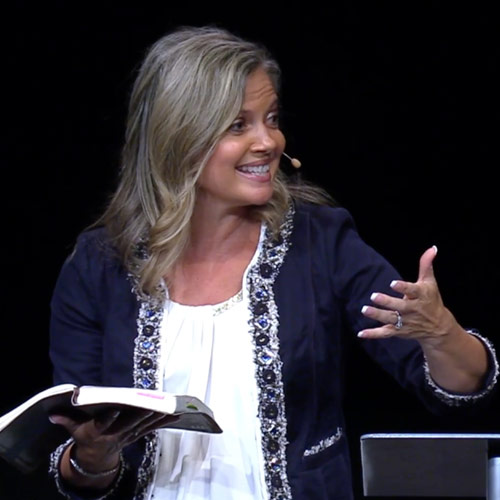The Christmas Story and Mary’s Surprising Response
/0 Comments/in Word on Wednesday /by Kelley LattaAnd Mary said, “Behold, I am the servant of the Lord; let it be to me according to your word.” And the angel departed from her. Luke 1:38
We all want to witness miracles.
We want God to wow us with wonder like He did so many times in Scripture. And let’s be honest. We really just wish God would show up and prove Himself.
So we cry out for miracles, just like Habakkuk.
Lord, I have heard of your fame; I stand in awe of your deeds, Lord. Repeat them in our day, in our time make them known; in wrath remember mercy.
Habakkuk 3:2 NIV
Yes, we want the miracles. We just don’t want what God requires of us to release them.
Faith.
I’m not talking about the theoretical faith we remind one another to carry about like a prized possession. We’ll grab hold of that easily enough.
No, I’m talking about hitting the pavement with it. Living faith that defies difficulty. That stretches and grows us. Faith that believes an unbelievable promise, then holds onto it no matter what.
Do you have that kind of faith, beloved? Do you take God at His Word, no matter how crazy it sounds? Because that’s the only way you and I will ever witness miracles.
We need to trust God’s Word more than we value our comfort.
We need to trust God’s Word more than we value our comfort. #Heplanstoprosperyou Click To TweetI wonder if you’ve thought much about Mary’s response to the angel who had just informed her she would give birth to God’s own son. “Let it be to me according to your word.”
Really? Is that how you would’ve responded?
Let’s forget for a moment that we know how it all works out and slip our feet into Mary’s sandals. She was just an ordinary girl, planning a wedding with the man of her dreams.
I wonder how many times she had imagined her wedding day. Would she wear flowers in her hair? Did she help her mother design her dress? I imagine she dreamed of a beautiful gathering with family and friends offering warm smiles and supportive hugs.
Then a messenger appeared with news of a very different dream.
A baby.
Before her wedding day.
In this new dream, her husband wouldn’t father her firstborn child. She would face ridicule and judgment. She might even lose the husband her dreams encircled.
Yet when an angel of the Lord appeared to her declaring that God had chosen her to mother the Son of God Himself, she said,
“Behold, I am the servant of the Lord; let it be to me according to your word.”
Amazing. Mary simply believed God, and that was enough for her. She was an ordinary woman who set her heart toward extraordinary godly purpose. God’s Word became more important than her comfort and ease. More powerful than doubt, ridicule, shame, or loneliness.
She believed God, and trusted that His plan would bring about His very best for her. God still asks the same of us.
“For I know the plans I have for you,” declares the Lord, “plans to prosper you and not to harm you, plans to give you hope and a future.” Jeremiah 29:11 NIV
Mary’s belief invited God’s seed to create life in her womb. And God would use this ordinary girl as a vessel through whom He would bring about His plan to redeem a lost and broken world.
Do you think she found it worth it, beloved? When she finally looked into the face of the miracle she had carried within her for nine long months, do you think she felt regret?
I don’t. My guess is one emotion consumed her. Love. She gazed into Love’s face and held Him in her arms. I imagine she wept with wonder. And gratitude flooded her heart.
But eventually her miracle would ask more of her. More surrender. More sacrifice.
One day hatred would tear her Son from her. The man He would become would hang before her, bloodied and beaten on a wooden cross.
Her child that kings had worshipped with gifts of gold, frankincense, and myrrh would become the sacrificial Lamb. And Mary would receive her greatest miracle. Eternal life.
Will you trust God to work miracles through your life, beloved? Will you trust even when you don’t understand? Would you believe the blessing overshadows the cost?
Mary believed.
And blessed is she who believed that there would be a fulfillment of what was spoken to her from the Lord. Luke 1:45
join the klm
Community
Sign up to receive our blog, news and updates, ministry opportunities and more!
Would You Let God Birth a Miracle Through You?
/0 Comments/in Word on Wednesday /by Kelley LattaAnd Mary said, “Behold, I am the servant of the Lord; let it be to me according to your word.” And the angel departed from her. Luke 1:38
We all want to witness miracles.
We want God to wow us with wonder like He did so many times in scripture. And let’s be honest. We really just wish God would show up and prove Himself.
So we cry out for miracles.
Lord, I have heard of your fame; I stand in awe of your deeds, Lord. Repeat them in our day, in our time make them known; in wrath remember mercy. Habakkuk 3:2 NIV
Yes, we want the miracles. We just don’t want what God requires of us to release them.
Faith.
I’m not talking about a theory of faith. We’ll grab hold of that easily enough.
No, I’m talking about hitting the pavement with it. Living faith that defies difficulty. That stretches and grows us. Faith that believes an unbelievable promise, then holds onto it no matter what.
Do you have that kind of faith, beloved? Do you take God at His Word, no matter how crazy it sounds? Because that’s the only way you and I will ever witness miracles.
We need to trust God’s Word more than we value our comfort.
We need to trust God’s Word more than we value our comfort. #Heplanstoprosperyou Click To TweetI wonder if you’ve thought much about Mary’s response to the angel who had just informed her she would give birth to God’s own son. “Let it be to me according to your word.”
Really? Is that how you would’ve responded?
Let’s forget for a moment that we know how it all works out and slip our feet into Mary’s sandals. She was just an ordinary girl, planning a wedding with the man of her dreams.
I wonder how many times she had imagined her wedding day. Would she wear flowers in her hair? Did she help her mother design her dress? I imagine she dreamed of a beautiful gathering with family and friends offering warm smiles and supportive hugs.
Then a messenger appeared with news of a very different dream.
A baby. Before her wedding day.
In this new dream, her husband wouldn’t father her firstborn child. She would face ridicule and judgment. She might even lose the husband her dreams encircled.
Yet when an angel of the Lord appeared to her declaring that God had chosen her to mother the Son of God Himself, she said,
“Behold, I am the servant of the Lord; let it be to me according to your word.”
Amazing. Mary simply believed God, and that was enough for her. She was an ordinary woman who set her heart toward godly purpose. God’s Word became more important than her comfort and ease. More powerful than doubt, ridicule, shame, or loneliness.
She believed God, and trusted that His plan was the very best for her.
“For I know the plans I have for you,” declares the Lord, “plans to prosper you and not to harm you, plans to give you hope and a future.” Jeremiah 29:11 NIV
Mary’s belief invited God’s seed to create life in her womb. And God would use this ordinary girl as a vessel through whom He would bring about His plan of redemption for the world.
Do you think she found it worth it, beloved? When she finally looked into the face of the miracle she had carried within her for nine long months, do you think she felt regret?
I don’t, dear one. My guess is one emotion consumed her. Love. She gazed into Love’s face and held Him in her arms. I imagine she wept with wonder.
But then her miracle asked more of her. More surrender. More sacrifice.
One day hatred would tear her Son from her. The man He would become would hang before her, bloodied and beaten on a wooden cross.
Her child that kings had worshipped with gifts of gold would become the sacrificial Lamb. And Mary would receive her greatest miracle. Eternal life.
Will you trust God to work miracles through your life, beloved? Will you trust even when you don’t understand? Would you believe the blessing overshadows the cost?
Mary believed.
And blessed is she who believed that there would be a fulfillment of what was spoken to her from the Lord. Luke 1:45
Does Anxiety Compel Your Work?
/3 Comments/in Word on Wednesday /by Kelley LattaWhatever you do, work heartily, as for the Lord and not for men, knowing that from the Lord you will receive the inheritance as your reward. You are serving the Lord Christ. Colossians 3:23-24 ESV
There’s no getting around it. Scripture calls us to work.
Heartily.
Giving it all we’ve got.
So sometimes we get a little confused when we read the story of Mary and Martha. We see Martha busily serving all who had gathered in her home, and we expect Jesus to commend her. After all, He blesses diligent servants.
“Who then is the faithful and wise servant, whom his master has set over his household, to give them their food at the proper time? Blessed is that servant whom his master will find so doing when he comes.” Matthew 24:45-46
Martha was sure her service would bring her Master’s blessing. So sure, in fact, that when she saw her sister idly sitting at His feet, judgment surfaced. And she brought her frustration to Jesus.
“Lord, do you not care that my sister has left me to serve alone? Tell her then to help me.” Luke 10:40
Look at the emotion revealed in Martha’s words. Lord, do you not care? Her thoughts are obvious. He should care, because she cared greatly. She cared so much that she commanded Jesus to intervene.
“Tell her then to help me.”
His answer surprised her. And—if we’re going to be honest—often frustrates many of us.
But the Lord answered her, “Martha, Martha, you are anxious and troubled about many things, but one thing is necessary. Mary has chosen the good portion, which will not be taken away from her.” Luke 10:41-42, emphasis mine
Mary has chosen the good portion. Mary who sat while Martha worked.
As a former Martha, I feel her pain. I get it completely. After all, someone had to feed those people. Someone had to take care of things.
But Jesus saw something you and I can’t see without looking on the scene through a spiritual lens. He saw straight into Martha’s heart.
Consider this excerpt from Jon Bloom’s Things Not Seen.
To just about everyone else present, Martha’s serving probably appeared to flow from the heart of a gracious servant. But Jesus discerned differently. He saw that Martha’s serving flowed from anxiety, not grace. [see verse 41]
What was making Martha anxious? We know she was anxious about “many things.” But we need only examine our own similar anxieties to guess the likely root. I think Martha was anxious about how she impressed Jesus and her other guests. She was troubled at the thought that her home and serving might reflect poorly over her and her family. And this anxiety blinded her to the “one thing necessary”—listening to Jesus—and made many unnecessary tasks feel compulsively urgent.
This kind of anxiety is subtle. It has a selfish root but its fruit looks deceptively like unselfishness. This anxiety is the desire for approval dressed up to look like the desire to serve. This anxiety is my caring what you think of me dressed up to look like my caring for you. It can be so subtle that we don’t see it clearly. It can look so much like the right thing that we believe it’s the right thing. That’s why Martha was confident that Jesus would agree with her about Mary. (p.58-59, emphasis mine)
But Jesus didn’t agree with Martha. He’s far less interested in the work itself than the motivation behind it.
“For the Lord sees not as man sees: man looks on the outward appearance, but the Lord looks on the heart.” 1 Samuel 16:7b
And Jesus saw that while Martha appeared to be serving others, she actually served an inner need rooted in her flesh. That need caused her to serve from anxiety instead of grace.
I have been there, dear one. I have put in hours of anxious work, fully convinced that I was doing it for Jesus. Like Martha, I have even found myself frustrated when others didn’t share my dedication.
Then my precious Savior showed me the hidden attachments of my heart. And I discovered that He wasn’t the One burdening me with tiresome labor. I was.
Jesus comes to give us rest, beloved.
“Come to me, all who labor and are heavy laden, and I will give you rest. Take my yoke upon you, and learn from me, for I am gentle and lowly in heart, and you will find rest for your souls. For my yoke is easy, and my burden is light.” Matthew 11:28-30
Although Martha did good work, her soul was not at rest. Mary chose the good portion: rest in His presence.
At His feet we learn who He is and see who we truly are.
In His presence He sets us free from the fleshly attachments that darken our souls.
Love compels us. His Spirit empowers us.
And He lavishes our work with grace.
The Word of God became Flesh
/1 Comment/in Word on Wednesday /by Kelley LattaThe Word became flesh and made his dwelling among us. We have seen his glory, the glory of the One and Only, who came from the Father, full of grace and truth. John 1:14
What’s your favorite part of the Christmas story, dear one?
Is it Mary’s response to a visiting angel? Or perhaps the terrified shepherds tending their flock who found themselves engulfed in glory? I love the image of Magi from the east bowing to present costly gifts to a toddler King. If you let them, the details surrounding Jesus’ birth inspire awe and wonder.
Today I’d like to spend some time treasuring one of those details tucked in our opening Scripture, “The Word became flesh and made his dwelling among us.” Have you considered the significance of that phrase, beloved?
Perhaps you were not aware that the birth of God’s Son—the Word—came on the heels of four hundred years of silence from God.
That may seem of little consequence to you. Maybe you’ve lived your whole life expecting God’s silence because that’s all you’ve known. But scripture overwhelmingly declares that God speaks to His created. He talked with Adam and Eve in the garden after He gave them life, and our first glimpse of Him after they sinned reveals a striking picture of God’s heart.
Then the man and his wife heard the sound of the Lord God as he was walking in the garden in the cool of the day, and they hid from the Lord God among the trees of the garden. But the Lord God called to the man, “Where are you?” Genesis 3:8-9
Do you see it, dear one? Even after they sinned, God came seeking them. He desires fellowship with us and wants us close. He calls to us, inviting a reply. When we hear and respond, His words provide life and quiet the soul. They become ‘”a lamp to my feet and a light for my path” Psalm 119:105.
So why would a God of fellowship who distinguishes Himself by speaking to His people remain silent for four hundred years?
It shouldn’t have surprised them. He told them it was coming.
“The days are coming,” declares the Sovereign Lord, “when I will send a famine through the land—not a famine of food or a thirst for water, but a famine of hearing the words of the Lord. Men will stagger from sea to sea and wander from north to east, searching for the word of the Lord, but they will not find it. Amos 8:11-12
God declared in advance that He would send a famine like no other—a famine of hearing His words. Why would He withhold that treasured gift from His people?
Well, usually our loving Father gives His children what they need. But sometimes, when they insist upon it, He gives them what they want.
“I am the Lord your God, who brought you up out of Egypt. Open wide your mouth and I will fill it. But my people would not listen to me; Israel would not submit to me. So I gave them over to their stubborn hearts to follow their own devices.” Psalm 81:10-12
The people of God took for granted the gift they had been given. God spoke, but they refused to listen. He desired to fill their mouths, but they decided they didn’t need Him.
. . . they refused to pay attention; stubbornly they turned their backs and stopped up their ears. They made their hearts as hard as flint and would not listen . . . Zechariah 7:11-12
So God stopped speaking. For four hundred long, silent years. And the people eventually realized what they had given up by chasing after their own desires. They longed to hear from God again, staggering from sea to sea, wandering in search of the word of the Lord, but they could not find it (Amos 8:12). They became desperate for it, to no avail. Until . . . once again, God proved His faithfulness.
But when the time had fully come, God sent his Son, born of a woman . . . Galatians 4:4
The Word became flesh and made His dwelling among us (John 1:14). The Word of the Lord returned, this time clothed in human flesh, an expression of God they could see and hear and touch. God’s voice entered the realm of earth again, carried on the cries of His infant Son.
Jesus grew, and God continued to speak through Him. He revealed God’s character and heart, teaching truth to all who would listen. The Word called us back into fellowship with His Father, extending the invitation, “Follow me.”
Then He poured out His life on a cross so we could maintain that fellowship with God forever. And He left us the gift of His Spirit so we can continue to hear and discern God’s truth.
The Word still speaks, dear one. Will you hear and believe?
The Heart of a Betrayer
/0 Comments/in Word on Wednesday /by Kelley LattaThis is how we know what love is: Jesus Christ laid down his life for us. And we ought to lay down our lives for our brothers and sisters. 1 John 3:16 NIV
Never forget, dear one. No one took Jesus’ life from Him. He laid it down. Evil men may have plotted and schemed, but they held no power over God’s Son. Everything He suffered, He allowed.
The perfect, sinless, Son endured so much for you and me. He faced rejection, ridicule, beatings and flogging. Nails pierced His hands and feet, fastening Him to the cross of our shame. Jesus became the very curse He would conquer, all for one very specific purpose.
God made him who had no sin to be sin for us, so that in him we might become the righteousness of God. 2 Corinthians 5:21
Beloved, Jesus became sin so that you and I could become righteousness.
I hope you haven’t missed that part.
Jesus didn’t surrender Himself to the cross just to keep you out of hell, dear one. He gave up His life so He could get hell out of you. He purposed to redeem your character from the enemy’s influence and recreate you into the image of God.
Do you bear God’s image, dear one? Do you love compassionately, compelled to give of yourself? Or are you more like the prince of this world, driven to take for yourself?
We’d be wise to consider the question carefully. You see, we can do our best to look like God from the outside, but if our heart doesn’t resemble His, eventually we’ll self-destruct.
Judas learned that lesson the hard way. Let’s take a look at the event that sent him to the chief priests to betray Jesus.
And while he [Jesus] was at Bethany in the house of Simon the leper, as he was reclining at table, a woman came with an alabaster flask of ointment of pure nard, very costly, and she broke the flask and poured it over his head. There were some who said to themselves indignantly, “Why was the ointment wasted like that? For this ointment could have been sold for more than three hundred denarii and given to the poor.” And they scolded her. Mark 14:3-5
Don’t miss the fact that some watching believed the ointment was wasted on Jesus.
I wonder how many times you and I have entertained similar thoughts upon witnessing a radical demonstration of love for our Savior.
He’s not worth that.
Verse 5 reveals that Mary’s gift had a value of more than 300 denarii, the equivalent of almost a year’s wages. Let’s get a bit of perspective, shall we?
In 2012 the median wage in the US per person was $26,695. What would you do with a possession worth that much? Would you be willing to pour it out for another? Or could you only see its potential to do amazing things for you?
Scholars agree that the flask of expensive perfume was likely Mary’s dowry, a treasure kept to ensure her future. Her bride price. When Mary broke it in an act of worship, she laid down her opportunity for a husband. Her future children. She poured out everything that gave her value in her culture, offering them to Jesus in an act of love.
I can’t help thinking of Matthew 16:24-25.
Then Jesus told his disciples, “If anyone would come after me, let him deny himself and take up his cross and follow me. For whoever would save his life will lose it, but whoever loses his life for my sake will find it.”
Mary was willing to lose her life for Jesus sake. And she found real life in the loving arms of her Savior.
Our friend Judas, however, had an interesting response to what he witnessed.
Then Judas Iscariot, who was one of the twelve, went to the chief priests in order to betray him to them. Mark 14:10
What about this particular event triggered Judas to sell his friend and master for 30 pieces of silver?
John 12:5-6 sheds some light on Judas’ intentions.
“Why was this ointment not sold for three hundred denarii and given to the poor?” He said this, not because he cared about the poor, but because he was a thief, and having charge of the moneybag he used to help himself to what was put into it.
Consider this carefully, dear one. Judas was only with Jesus for what he thought he could get from Him. He was willing to steal from Him to have his own dream. Although he served the poor alongside Jesus, he didn’t really care about them. He stole from them to line his own pockets.
And when he witnessed Mary’s extravagant gift, money he believed should’ve been his wasted on Jesus, he took offense. That offense sent him straight to the chief priests.
We need to understand something about Judas, dear one. He was no more evil than you or me. He wasn’t a malicious man at heart. He served in the community helping people.
Judas was simply self-centered. And he loved money more than he loved Jesus.
No wonder Jesus said in Matthew 6:24,
“No one can serve two masters, for either he will hate the one and love the other, or he will be devoted to the one and despise the other. You cannot serve God and money.”
Judas’ love of money caused him to despise God—at least momentarily—and it cost him everything. He immediately regretted his decision, but he couldn’t undo what he had done.
Then when Judas, his betrayer, saw that Jesus was condemned, he changed his mind and brought back the thirty pieces of silver to the chief priests and the elders, saying, “I have sinned by betraying innocent blood.” They said, “What is that to us? See to it yourself.” And throwing down the pieces of silver into the temple, he departed, and he went and hanged himself. Matthew 27:3-5
Beloved, Jesus chose to suffer the cross to free us from the wretchedness within us. It’s our own self-centeredness that makes us most like Satan, that drives us to take instead of give. Will you let the Spirit of God recreate you in His image? Will you surrender your heart to be sifted and changed so it can beat with His love?
Life hinges on your decision, dear one. Choose to lay down your life and live.
The Word Became Flesh
/0 Comments/in Word on Wednesday /by Kelley LattaThe Word became flesh and made his dwelling among us. We have seen his glory, the glory of the One and Only, who came from the Father, full of grace and truth. John 1:14
What’s your favorite part of the Christmas story? Is it Mary’s response to a visiting angel? Or perhaps the terrified shepherds tending their flock who found themselves surrounded by the glory of the Lord? I love the image of Magi from the east bowing and presenting costly gifts to a toddler King. If you let them, the details surrounding the birth of Jesus inspire awe and wonder.
I’d like to spend some time with you today treasuring one of those details found in our opening Scripture, “The Word became flesh and made his dwelling among us.” Have you considered the significance of that phrase?
Perhaps you were not aware that the birth of God’s Son—the Word—came on the heels of four hundred years of silence from God.
That may seem of little consequence to you. Maybe you’ve lived your whole life expecting God’s silence because that’s all you’ve known. But the overwhelming truth revealed in Scripture is that God speaks to His created. He talked with Adam and Eve in the garden after He gave them life, and our first glimpse of Him after they sinned reveals a striking picture of God’s heart.
Then the man and his wife heard the sound of the Lord God as he was walking in the garden in the cool of the day, and they hid from the Lord God among the trees of the garden. But the Lord God called to the man, “Where are you?” Genesis 3:8-9
Do you see it, dear one? Even after they sinned, God came seeking them. He desires fellowship with us and wants us close. He calls to us, and He waits for us to respond. When we listen, His words provide life and quiet the soul. They become ‘”a lamp to my feet and a light for my path” Psalm 119:105.
So why would a God of fellowship who distinguishes Himself by speaking to His people remain silent for four hundred years?
It shouldn’t have been a surprise to them. He told them it was coming.
“The days are coming,” declares the Sovereign Lord, “when I will send a famine through the land—not a famine of food or a thirst for water, but a famine of hearing the words of the Lord. Men will stagger from sea to sea and wander from north to east, searching for the word of the Lord, but they will not find it. Amos 8:11-12
God declared in advance that He would send a famine like no other—a famine of hearing His words. Why would He withhold that treasured gift from His holy people?
Well, usually our loving Father gives His children what they need. But sometimes, when they insist upon it, He gives them what they want.
“I am the Lord your God, who brought you up out of Egypt. Open wide your mouth and I will fill it. But my people would not listen to me; Israel would not submit to me. So I gave them over to their stubborn hearts to follow their own devices.” Psalm 81:10-12
The people of God took for granted the gift they had been given. God spoke, but they refused to listen. He desired to fill their mouths, but they decided they didn’t need Him to. They thought they could do it better. So,
. . . they refused to pay attention; stubbornly they turned their backs and stopped up their ears. They made their hearts as hard as flint and would not listen . . . Zechariah 7:11-12
So God stopped speaking. For four hundred long, silent years. And the people eventually realized what they had given up by chasing after their own desires. They longed to hear from God again, staggering from sea to sea, wandering in search of the word of the Lord, but they could not find it (Amos 8:12). They became desperate for it, to no avail. Until . . . once again, God proved His faithfulness.
But when the time had fully come, God sent his Son, born of a woman . . . Galatians 4:4
The Word became flesh and made His dwelling among us (John 1:14). The Word of the Lord returned, this time clothed in human flesh, an expression of God they could see and hear and touch. God’s voice entered the realm of earth again, carried on the cries of His infant Son.
Jesus grew, and God continued to speak through Him. He revealed God’s character and heart, teaching truth to all who would listen. The Word called us back into fellowship with His Father, extending the invitation, “Follow me.”
Then He poured out His life on a cross so we could maintain that fellowship with God forever. And He left us the gift of His Spirit so we can continue hear and discern the truth of God.
The Word still speaks, dear one. Like Israel centuries ago, you and I must choose whether we will listen.
Something Better
/0 Comments/in Word on Wednesday /by Kelley LattaThese were all commended for their faith, yet none of them received what had been promised, since God had planned something better for us so that only together with us would they be made perfect. Hebrews 11:39-40 NIV
The verses you just read close out the Hebrews 11 “Hall of Faith,” where God took care to remind us of the courageous exploits of some of the faithful. Yet as much as devoted men like Noah, Moses, and Abraham got to experience God, scripture reveals this amazing truth: none of them received what had been promised. There was more.
With all that they got to know and witness of God on this earth, with what they have seen and understood of God’s plan of redemption even now in His presence, something waits. Something better. Something they can only experience together with us.
Can you imagine what that moment will bring, dear one?
All time moves toward the great revelation, the wondrous Day of the Lord when Christ returns to reveal Himself in all His glory, flooding darkness with light and erasing all mystery. Only then will we understand all things fully as we are made perfect together.
Yet many of us live as though that’s already taken place. We often act as though we grasp God completely and have unraveled all the mystery. We assume our understanding of God and His Word is correct and absolute, so we close off our hearts to the possibility that Jesus could be even more than what we’ve perceived Him to be.
The people of Nazareth did that very thing centuries ago when Jesus began to reveal His true nature.
Coming to his hometown he taught them in their synagogue, so that they were astonished, and said, “Where did this man get this wisdom and these mighty works? Is not this the carpenter’s son? Is not his mother called Mary? And are not his brothers James and Joseph and Simon and Judas? And are not all his sisters with us? Where then did this man get all these things?” Matthew 13:54-56 ESV
Sometimes our perceived familiarity with Jesus becomes the very thing that holds us back from experiencing His other aspects that He still desires to show us. We think we know Him, and we’ve neatly wrapped our understanding of who He is in a nice little package we can grasp. Then we encounter something that doesn’t quite fit into that package, and it makes us uncomfortable. So we reject the possibility that it might be true.
The people of Nazareth saw Jesus as the carpenter’s son with a mother named Mary. They watched Him grow up. They knew His brothers and sisters. And that familiarity caused them to bristle when they saw Him doing something that didn’t line up with their understanding. They couldn’t believe that Jesus could be more than what they already knew Him to be.
And they took offense at him. But Jesus said to them, “A prophet is not without honor except in his hometown and in his own household.” Matthew 13:57
I wonder. Does Jesus once again find Himself without honor in His own household? Does His heart break as He watches His churches refuse to acknowledge certain aspects of His character? Has our unbelief quenched the work of His Spirit and hidden His glory?
That’s what happened in Nazareth.
And he did not do many mighty works there, because of their unbelief. Matthew 13:58
I pray we never discover that our own unbelief held back the works Jesus desired to do among us in our day.
What if each of us chose to humbly offer our hearts to our Lord as teachable? What if we opened ourselves to the possibility that Jesus still has greater things to reveal?
Consider Jesus’ words to His disciples in John 16:12-14.
“I still have many things to say to you, but you cannot bear them now. When the Spirit of truth comes, he will guide you into all the truth, for he will not speak on his own authority, but whatever he hears he will speak, and he will declare to you the things that are to come. He will glorify me, for he will take what is mine and declare it to you.”
Jesus flat out told His followers that they had much to learn, but they couldn’t handle it all at once. He would reveal it to them over time as they became ready to receive it.
You and I are no different, dear one. Jesus has much to teach us, but we cannot bear it all at once. Some become ready to receive certain truths before others. Yet like those first disciples, He has given us His Spirit to “guide you into all the truth” (John 16:13).
We can’t just stick with the truths we’re comfortable with. We need to humbly allow Jesus to reveal all of His truth to us in His time. And just because my heart may not be ready to receive something, doesn’t mean it isn’t true. It just means I’m not yet a witness to it.
“You are my witnesses,” declares the Lord, “and my servant whom I have chosen, that you may know and believe me and understand that I am he. Before me no god was formed, nor shall there be any after me. Isaiah 43:10
Isaiah 43:10 speaks a profound truth. We are many witnesses, but together we are His one servant. Perhaps only together, as each of us brings our limited understanding of our unlimited God, can we fully reveal who Jesus is.
Let’s invite the Holy Spirit to open our minds and guide us into all truth,
. . . until we all reach unity in the faith and in the knowledge of the Son of God and become mature, attaining to the whole measure of the fullness of Christ. Ephesians 4:13
Something better, indeed.
A Wolf Among the Sheep
/0 Comments/in Word on Wednesday /by Kelley LattaNow before the Feast of the Passover, when Jesus knew that his hour had come to depart out of this world to the Father, having loved his own who were in the world, he loved them to the end. John 13:1 ESV
My heart stirred when I read that verse the other day over my morning coffee. There’s nothing quite like Jesus’ love. He poured it out on His disciples while He lived among them, and “…He loved them to the end.”
Sadly, they didn’t all love Him in return. The very next verse ushers in the unthinkable.
During supper, when the devil had already put it into the heart of Judas Iscariot, Simon’s son, to betray him, Jesus, knowing that the Father had given all things into his hands, and that he had come from God and was going back to God, rose from supper. He laid aside his outer garments, and taking a towel, tied it around his waist. Then he poured water into a basin and began to wash the disciples’ feet and to wipe them with the towel that was wrapped around him. John 13:2-5
I wonder how Judas felt as Jesus knelt before him to wash his feet. Did his heart race as Jesus tenderly dipped them in the basin? I wonder if Jesus gazed into his face, eyes blazing with the love He felt for him.
His betrayal must have burned within his soul, and yet Judas still left the table to sell his Savior for thirty pieces of silver.
It seems impossible to us, but the truth is, any one of us could easily be him.
Dear one, I doubt that Judas set out to betray Jesus in the beginning. He probably began his journey much like the other disciples—full of hope and wonder, drawn by possibility.
So what went wrong? How could a trusted friend of Jesus stray so terribly far off course?
One thing separates the sheep from the wolf, beloved. Love. Judas may have served with Jesus, but he never offered Him his heart. He wasn’t willing to deny himself to follow Him. He wanted to use his relationship with Jesus to further himself.
How do I know that? The previous chapter invites us to view another scene where the disciples reclined around a table and a different foot washing of sorts took place. Mary, sister of Martha and Lazarus,
. . . took a pound of expensive ointment made from pure nard, and anointed the feet of Jesus and wiped his feet with her hair. The house was filled with the fragrance of the perfume. John 12:3
Our friend Judas had an interesting response.
But Judas Iscariot, one of his disciples (he who was about to betray him), said, “Why was this ointment not sold for three hundred denarii and given to the poor?” He said this, not because he cared about the poor, but because he was a thief, and having charge of the moneybag he used to help himself to what was put into it. John 12:4-6
Do you see it, dear one? Judas served, but he didn’t love. He couldn’t understand “wasting” expensive perfume to anoint Jesus. He didn’t love Him like Mary did. And he didn’t want to waste spending the ministry funds on the poor Jesus loved. He wanted it for himself.
Hear me, beloved. Jesus gave Judas the same power He gave the other eleven (Luke 9:1-2). He could preach the Word. He could heal the sick. If power marked the true disciple, Judas surely was one.
Yet John 17:12 reveals that Judas was doomed to destruction (NIV).
Power and authority are not the marks of salvation, dear one. God can empower anyone at any time to do His will simply because He’s God. The mark of salvation is found in a different place. It’s found within the heart. Jesus said,
“By this all people will know that you are my disciples, if you have love . . . ” John 13:35
1 John 2:5-6 adds this:
But whoever keeps his word, in him truly the love of God is perfected. By this we may know that we are in him: whoever says he abides in him ought to walk in the same way in which he walked.
Jesus lived out love, and “ . . . he loved them to the end” (John 13:1).
While Judas went through all the motions of being a disciple, he wasn’t one. He looked like one. He acted like one. Jesus even empowered him like one. But he didn’t have the heart of one.
No one else could tell. The disciples had no idea who Jesus was talking about when He told them one would betray Him (John 13:22). They saw no external signs because he looked and acted just like the rest of them.
But Jesus saw. He knew the self-centered longings of Judas’ heart. He knew he never truly offered Jesus the right to rule in him. He remained his own lord, choosing to exalt his own kingdom instead of God’s. And Jesus honored Judas’ choice.
He loved him to the end, but He did not save him.










